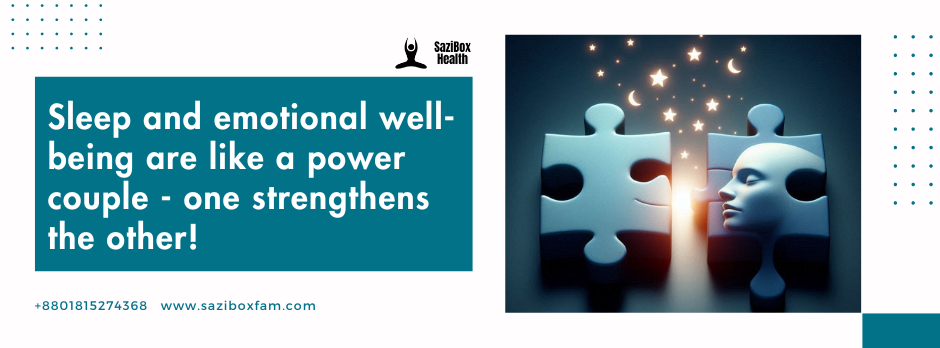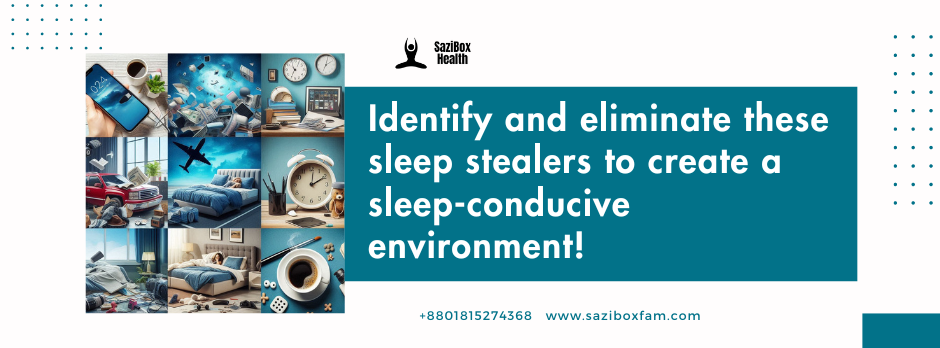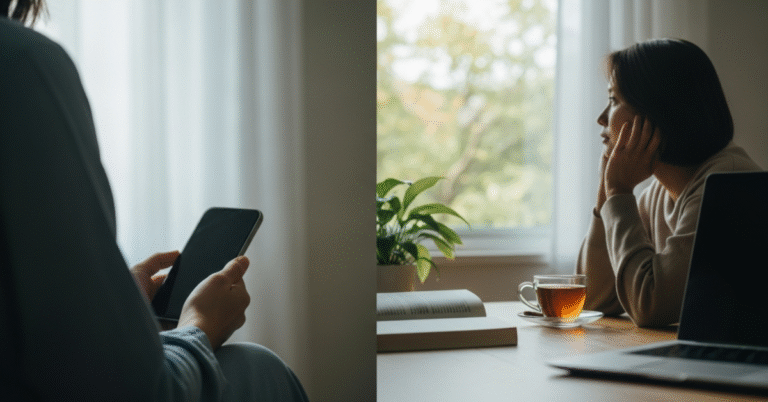
Welcome back to SaziBox Health, your emotional well-being companion! We’ve explored self-compassion, harnessed the power of positive self-talk, and delved into the world of mindfulness. Now, let’s dive into the dream realm and unlock the surprising connection between healthy sleep habits and your emotional well-being!
Part 1: The Sleep-Emotion Power Couple
Imagine sleep as your emotional recharge station. Just like your phone needs consistent charging, so does your emotional resilience. Here’s how quality sleep impacts your emotional well-being:
- Reduced Stress & Anxiety: Sleep deprivation fuels stress hormones, making you feel overwhelmed. Adequate sleep helps regulate your nervous system, promoting calmness and emotional balance. (Reference 1: How Sleep Affects Your Emotions Matt Walker: How sleep affects your emotions | TED Talk
- Emotional Regulation: During sleep, your brain processes emotional experiences. Restful sleep strengthens your emotional regulation skills, making it easier to manage difficult emotions.
- Enhanced Mood & Positivity: A good night’s sleep leaves you feeling refreshed and optimistic. Chronic sleep problems can contribute to low mood and even depression.

Part 2: The Interactive Sleep Sanctuary Challenge
Ready to create your personal sleep sanctuary? Grab a pen and paper, and let’s embark on this interactive challenge!
Challenge 1: Discover Your Sleep Chronotype
Are you an early bird or a night owl? Knowing your natural sleep-wake cycle (chronotype) can help you establish a sleep schedule that works for you.
- Rate yourself:
- Do you feel most alert in the mornings or evenings?
- When do you naturally feel tired and ready for bed?
- Based on your answers, explore the different chronotypes (morning larks, night owls, etc.) and their ideal sleep schedules. (Reference 2: The Power of When by Michael Breus)
Challenge 2: Craft Your Sleep Routine
Develop a relaxing bedtime routine to signal to your body that it’s time to wind down. This could include:
- Taking a warm bath
- Reading a book
- Practicing light stretches or meditation
Read more
Build Your Bounce Back: A Guide To Emotional Resilience (An Interactive Exploration)
Part 3: Banish the Sleep Stealers
Identify and eliminate habits that disrupt your sleep:
- Limit screen time before bed: The blue light emitted by electronic devices can interfere with sleep.
- Create a sleep-conducive environment: Ensure your bedroom is dark, quiet, and cool.
- Avoid caffeine and alcohol close to bedtime: These substances can disrupt your sleep cycle.

SaziBox Health Top Sleep Tips:
- Regularity is key: Go to bed and wake up around the same time each day, even on weekends.
- Power down electronics at least an hour before bed.
- Don’t force sleep: If you can’t fall asleep after 20 minutes, get out of bed and do a relaxing activity until you feel tired.
Conclusion:
By prioritizing healthy sleep habits, you’re investing in your emotional well-being. Remember, a good night’s sleep is a powerful tool for managing stress, regulating emotions, and boosting your overall mood. So, sweet dreams and happy emotions!




[…] Sleep For Happiness: Unlock The Emotional Connection […]
[…] Sleep for Happiness: Unlock the Emotional Connection […]